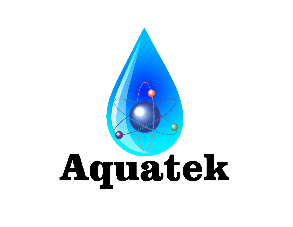Glossary of water terminology and definitions-o
Ohm
A
unit of measure determining the resistance to passage of an electrical
current. In a solution, it is related to the electrolyte concentration
in the solution.
Operating Pressure
The
range of pressure, usually expressed in pounds per square inch, over
which a water conditioning device or water system is designed to
function. Usually 30-100 psi.
Organic
Having
the characteristics of or being derived from plant or animal matter, as
opposed to inorganic matter derived from rocks and minerals. Organic
matter is characterized by its carbon-hydrogen structure.
Organics ( i.e., Organic Chemicals)
Term
used to describe any or all of the compounds with chemical structures
based on carbon. Examples are hydrocarbons, wood, sugars, proteins,
methane, petroleum-based compounds, solvents, pesticides, herbicides,
trihalomethane (THM) and trichloroethylene (TCE).
Osmosis
A
process of diffusion of a solvent such as water through a
semi-permeable membrane which will transmit the solvent but impede most
dissolved substances. The normal flow of solvent is from the dilute
solution to the concentrated solution. Osmosis causes the stronger
solution to become more diluted and tends to equalize the opposing
solutions.
Osmotic Pressure
The
pressure and potential energy difference that exists between solutions
on either side of a semi-permeable membrane. This pressure is caused by
the tendency of water to flow in osmosis. Every 100 ppm (mg/L) of TDS
produces about one pound per square inch of osmotic pressure. Osmotic
pressure must first be overcome by water pressure in the reverse osmosis
process.
Oxalic Acid
Can
be used for the removal of iron stains from most washable fabrics.
Oxalic acid crystals can be obtained at most drug stores. It is
poisonous and a skin irritant, therefore precautions must be used.
Oxidation
A
chemical process in which electrons are removed from an atom, ion or
compound. The addition of oxygen is a speciform of oxidation. Combustion
is an extremely rapid form of oxidation, while the rusting of iron is a
slow form. Oxidation never occurs alone but always as a part of the
oxidation-reduction (redox) reaction.
Oxidizing Agent
A
chemical substance that brings about the oxidation of other substances
in chemical oxidation and reduction reactions. Examples of oxidizing
agents include oxygen, ozone, chlorine and peroxide.
Oxidizing Filter
A
type of filter used to change the valence state of dissolved molecules,
making them insoluble and therefore filterable. For example, a filter
that oxidizes ferrous iron, manganous manganese, and/or anionic sulfur
by use of a catalytic media such as manganese oxide and then filters the
oxidized precipitant out of the water.
Ozone
An
unstable form of oxygen (03), which can be generated by sending a high
voltage electrical discharge through air or regular oxygen. It is a
strong oxidizing agent and has been used in water conditioning as a
disinfectant. It can be also produced by some types of ultraviolet lamps
and during lightning storms.
